I have a typescript POJO as follows
export interface Items {
firstName?: String;
lastname?: String;
Address?: String;
phoneNumber?: number;
city?: String;
state?: String;
zipcode?: number;
accountId?: number;
status?: String;
approvalStatus?: String;
txId?: number;
rxId?: number;
txBankname?: String;
rxBankName?: String;
txCcy?: String;
rxCcy?: String;
txCcyAmt?:number;
rxCcyAmt?:number;
txDate?:date;
rxDate?:date;
}
In my html file, I have a form with all the fields from above POJO. When a user selects a field, the pojo gets populated with the text entered.
However the user can choose to remain many fields empty and their properties in the object would be null.
So on submit button click, when I check the POJO, it is as in the below screeshot.
I want to populate another array with only the populated values ( not the null value properties ) .
this.anotherArray = [ {name:firstName, value:"Andy"},{name:lastName, value:"Smith"}]
I need to use it for an ngFor List to display angular material chip
How do we do it in a very optimized way.
edit: My question is regarding checking null properties in object and the duplicate question reference is to an array. Even the answers have different approaches. The Approach to my question is using Object.entries while the duplicate reference has an approach of using map and Object.keys
